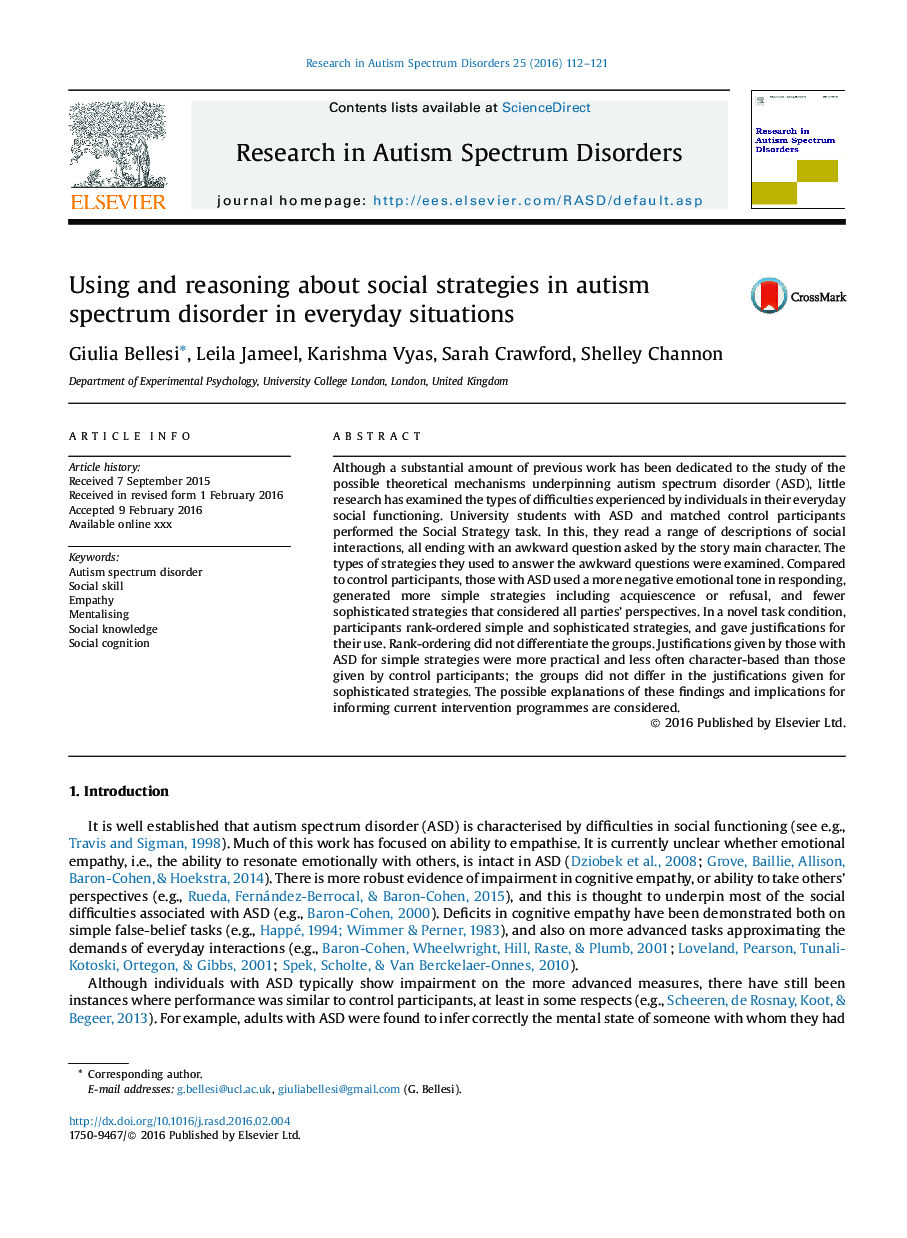| Article ID | Journal | Published Year | Pages | File Type |
|---|---|---|---|---|
| 6848028 | Research in Autism Spectrum Disorders | 2016 | 10 Pages |
Abstract
Although a substantial amount of previous work has been dedicated to the study of the possible theoretical mechanisms underpinning autism spectrum disorder (ASD), little research has examined the types of difficulties experienced by individuals in their everyday social functioning. University students with ASD and matched control participants performed the Social Strategy task. In this, they read a range of descriptions of social interactions, all ending with an awkward question asked by the story main character. The types of strategies they used to answer the awkward questions were examined. Compared to control participants, those with ASD used a more negative emotional tone in responding, generated more simple strategies including acquiescence or refusal, and fewer sophisticated strategies that considered all parties' perspectives. In a novel task condition, participants rank-ordered simple and sophisticated strategies, and gave justifications for their use. Rank-ordering did not differentiate the groups. Justifications given by those with ASD for simple strategies were more practical and less often character-based than those given by control participants; the groups did not differ in the justifications given for sophisticated strategies. The possible explanations of these findings and implications for informing current intervention programmes are considered.
Related Topics
Life Sciences
Neuroscience
Behavioral Neuroscience
Authors
Giulia Bellesi, Leila Jameel, Karishma Vyas, Sarah Crawford, Shelley Channon,
